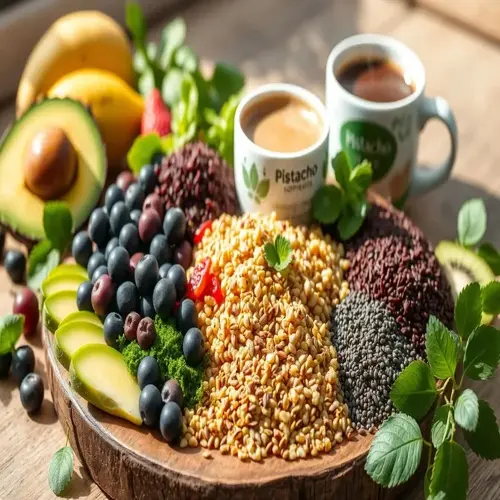Do collagen-rich foods benefit joint health?

Written by
Natalie Hamilton
Reviewed by
Prof. Benjamin Murphy, Ph.D.Eating collagen-rich foods helps the joints because they provide the building blocks needed for repairing damaged cartilage and reducing inflammation. Bone broth offers glycine and proline, which are essential for rebuilding cartilage in the joints, and zinc from pumpkin seeds, which activates the enzymes involved in joint repair. All the nutrients found in food sources of collagen, together with the omega-3s, produce a supportive effect on the joints.
Bone broth delivers bioavailable collagen peptides for immediate integration with joint cartilage. The glycine in bone broth helps decrease inflammation, while proline aids in repairing worn tissues. Pumpkin seeds provide zinc, which activates matrix metalloproteinases, the enzymes essential for collagen remodeling in joints. Daily intake is important.
Daily Essentials
- Morning: Citrus fruit with pumpkin seeds
- Afternoon: Leafy green salad with olive oil
- Evening: Bone broth or salmon 3x weekly
Inflammation Control
- Combine omega-3 sources with turmeric
- Avoid nightshades if sensitive
- Limit processed sugar to under 25g daily
Mobility Support
- Gentle movement after collagen meals
- Hydrate with mineral-infused water
- Targeted joint exercises 3x weekly
Salmon's omega-3 fatty acids help decrease inflammatory cytokines that harm joint collagen. Astaxanthin protects existing cartilage from free radicals through its activity. Citrus vitamin C enables the conversion of proline into strong collagen fibers. Leafy greens supply magnesium, which enhances the viscosity of synovial fluid, making movement smoother.
A client with knee pain utilized this protocol. She drank daily bone broth and ate salmon three times a week. After 2 months, she is 70% less stiff in her knees than before. The combination of collagen-rich foods and anti-inflammatory foods helped her regain mobility without the need for any supplements. The key is consistency!
Read the full article: 10 Collagen Boosting Foods for Healthier Skin

